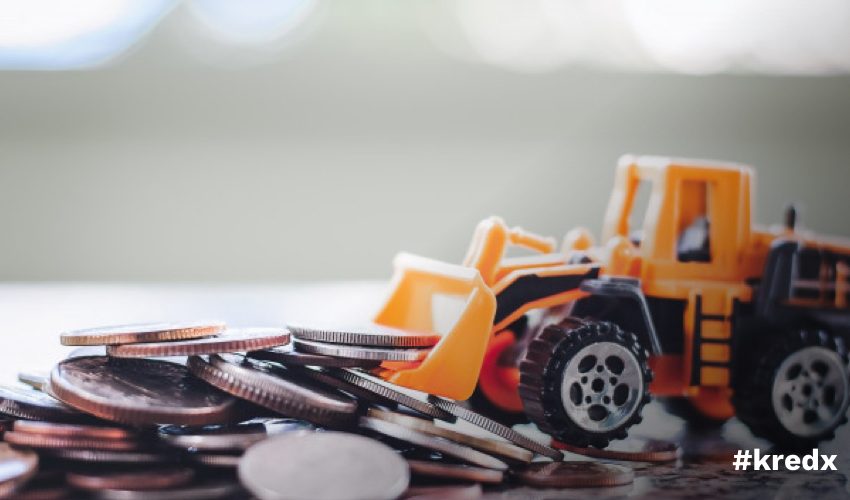
The Pros And Cons Of Equipment Loans
A business that uses the latest technology and equipment is likely to be more successful in terms of generating sustainable profits when compared to those using outdated ones. Most experts suggest that firm owners upgrade their technological setup and operate machinery frequently. Nonetheless, upgrading equipment and technology is easier said than done. One of the most noteworthy challenges that business owners face while planning such upgradation is the lack of adequate funding. Regardless, businesses can optimise their production process with the help of equipment loans and procure the latest technology and superlative equipment as and when deemed necessary. In case you are planning to avail an equipment loan, it is important to be familiar with the associated pros and cons to make an informed decision.
What Is An Equipment Loan?
Typically, it is a type of credit that extends a substantial amount of money to entrepreneurs and helps to purchase essential business equipment easily. Businesses can avail this loan to purchase equipment like – computers, office desk, high-end machinery, project management software, accounting software, farm equipment, fixtures, etc. In turn, such a credit option proves useful for businesses to boost their production and increase efficiency in terms of output’s quality and quantity. Generally, businesses apply for an equipment loan for the following reasons –
- To replace old equipment.
- To upgrade old machinery.
- To revamp the current technology of production.
Take a quick look at the significant benefits and drawbacks of equipment loans.
Advantages Of Equipment Loans
These following pointers highlight how you would benefit by availing an equipment loan –
-
Eliminates Cash Flow Problems
Purchasing high-end machinery tends to significantly offset the cash flow of a firm. Regardless, with equipment loan, individuals can spread out the cost of equipment successfully and avoid a cash flow crisis.
-
Zero Collateral Requirement
Typically, there is no requirement of pledging any additional collaterals. You can use the machine purchased with the sanctioned loan amount as collateral and eliminate the risk of losing other crucial machinery.
-
Tax Deductions
If you opt to use the equipment purchased with this loan exclusively for business operations, you will be entitled to tax deductions as well. To avail the benefit, you will be required to treat the equipment loan EMI as the operating expense.
-
Flexible Terms Of Repayment
Usually, leading financial institutions extend this credit option against flexible repayment terms. It helps businesses plan their EMI payouts more conveniently and facilitates better management of the same.
-
Total Ownership
Once the loan is repaid, the business owner becomes the sole owner of the machinery. It proves most useful in case of equipment that has a long shelf-life; for example – farm equipment, printing machine, computer, fixtures, etc. Other than these, businesses can avail an equipment loan readily, without going through a lengthy documentation process. However, several drawbacks accompany this credit; one must be aware of them to develop sound strategies and minimise their impacts.
Limitations Of Equipment Loans
You will be subject to the following drawbacks if you avail equipment loans –
-
A Higher Cost
Equipment loans accompany higher rates of interest when compared to most traditional credit options. However, applicants with a high credit score and strong eligibility criteria can negotiate to have lower rates against their borrowed sum.
-
Restriction On End Use
Typically, an equipment loan comes with restrictions on end-use. To elaborate, when you avail an equipment loan, you can use the sanctioned value only on the equipment. You cannot use the surplus amount to meet other operating expenses such as paying off wages, clearing outstanding debt, or utility bills. Nonetheless, to meet other operating expenses and to bridge the working capital gap, you can opt for alternative financing options like invoice discounting. With the help of the credit option, you can raise funds against your unpaid invoices and meet your business requirements seamlessly. Notably, make it a point to opt for a leading fintech company that extends integrated cash flow solutions at attractive terms of service.
-
Equipment Becomes Obsolete
In most cases, by the time the sum availed is repaid and the borrowers gain full ownership of the equipment, it becomes obsolete. It is also one of the reasons why borrowers are often stuck with outdated machinery or equipment they no longer require in their venture. Other than these, equipment loans often require borrowers to make a higher down payment close to 20% or more. Furthermore, when the equipment depreciates, borrowers cannot deduct the full cost each year.
Bottom Line
Equipment loans have their share of pros and cons; individuals must make it a point to find out about them in detail in order to make an informed decision. Alternatively, they may look for other funding options like invoice discounting to meet their working capital gap successfully.



